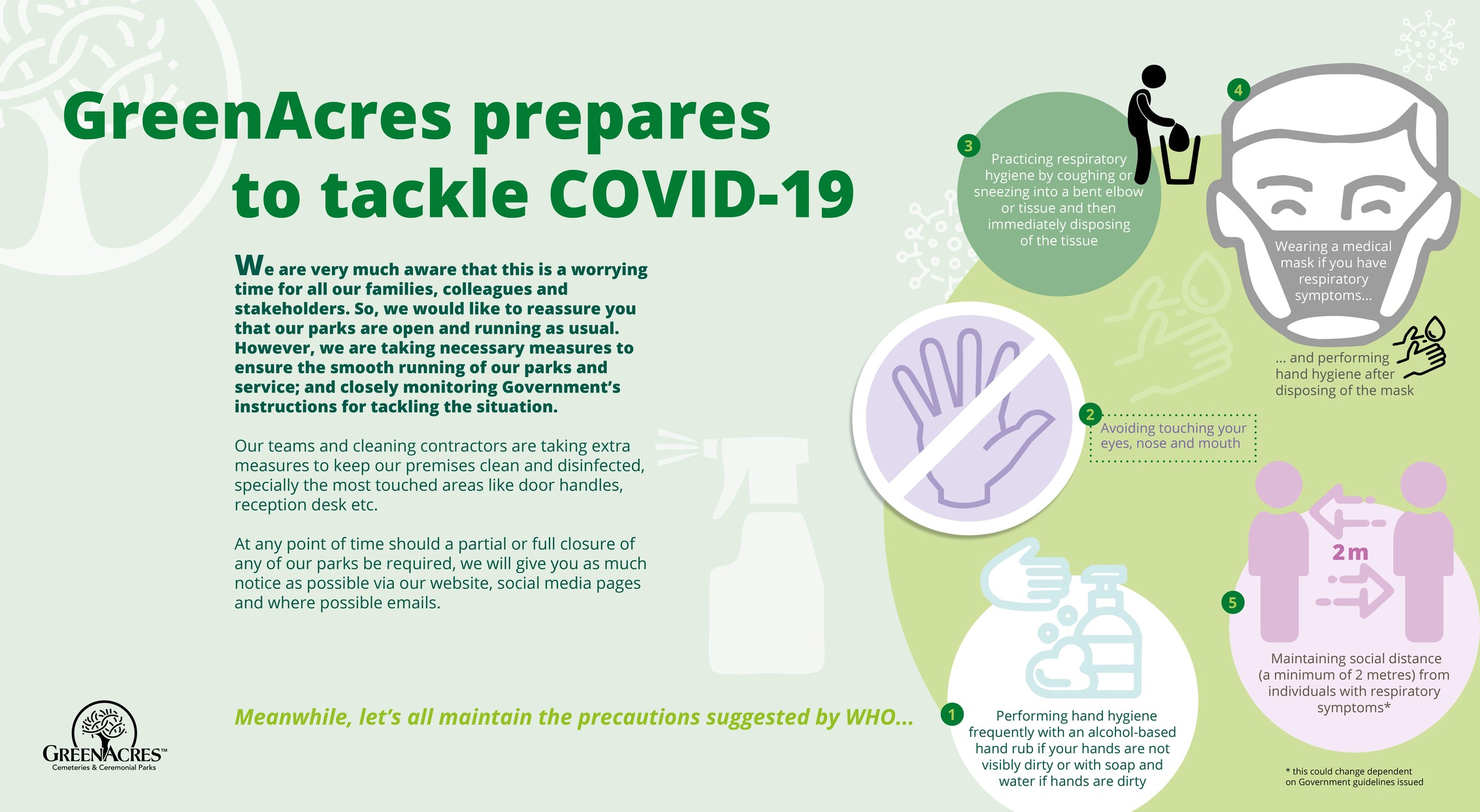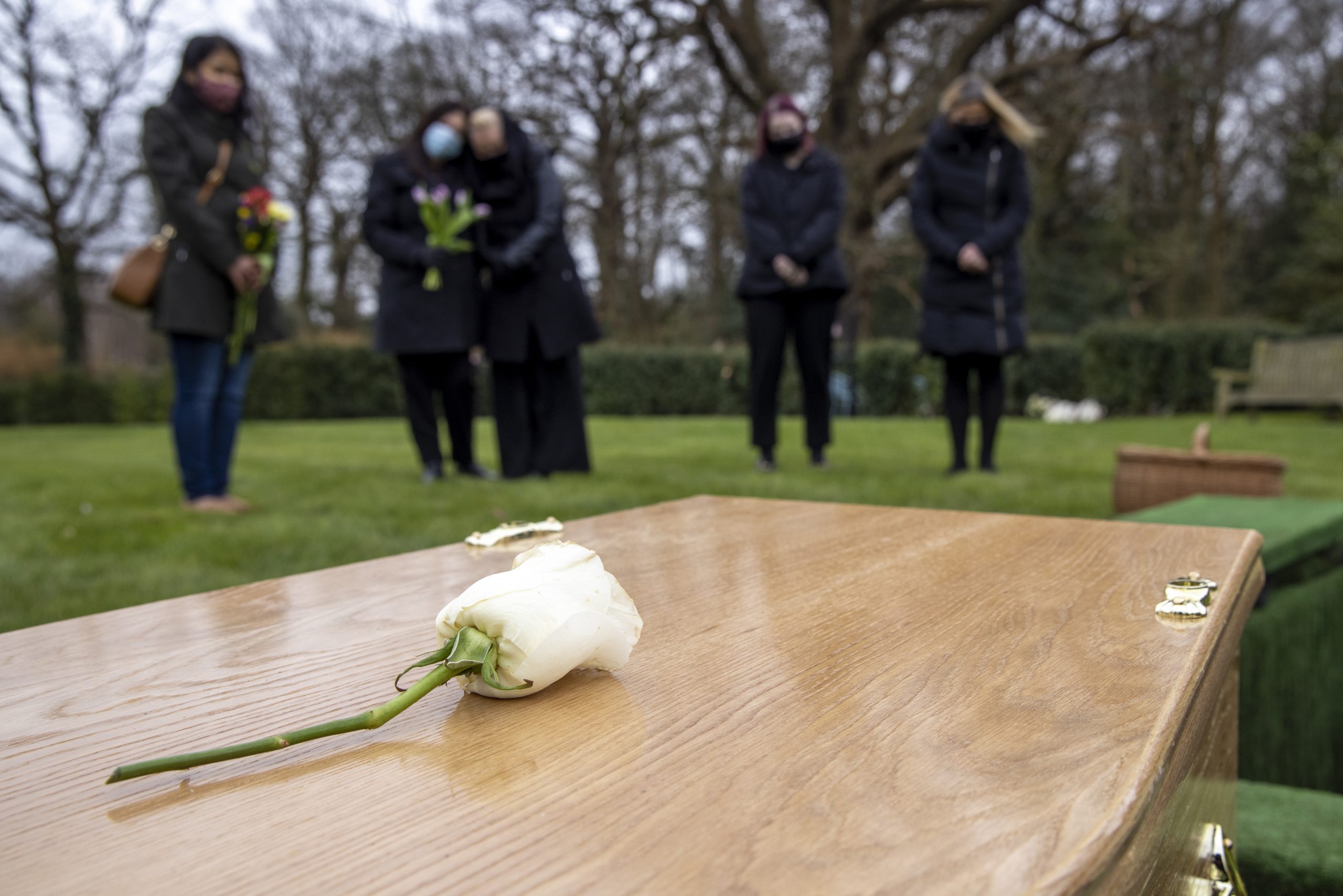
SEE OUR REVIEWS ON
Blogs Under: funeral speech
Parks
Update News
-

-

“So many people have said it was the best funeral they had been to..”
So many people have said it was the best funeral…
Follow -

GreenAcres Christmas Remembrance Service 2020
GreenAcres Christmas Remembrance Service 2020. Watch the Video: https://vimeo.com/491639508
Follow -

-

Local memorial parks part of national reflection on past 12 months of loss
On the first National Day of Reflection (23 March 2021),…
Follow
Tags
- Alternative transport
- arrangement of burial
- ashes
- Bereaved Mother's Day
- bereavement cafe
- bereavement support
- blog
- Burial
- burial in the UK
- carbon footprint
- Carol Bundock
- celebrating a life
- cemetery
- charity
- Christmas
- Colney Park
- Covid19 reflection day 2021
- cremated remains
- cremation
- cremations
- dealing with loss
- Death
- Deputy Lieutenant of Norfolk
- difficult time
- eco burial
- eco-friendly burial
- Environment
- Eternal Gardens
- express their grief
- facebook account after death
- father figure
- father's day
- festive period
- following a bereavement
- funeral
- funeral clothing
- funeral plan
- funeral planning tips
- funeral services
- funeral speech
- green canopy
- GreenAcres
- GreenAcres Colney
- Grief
- grieving on Mother's day
- guide for cremation
- guide for funeral planning
- guide to deal with mother's death
- here for you
- ideas for ashes
- ideas for life celebration
- inspirational eulogy
- instagram accounts after death
- Kemnal Park
- kinder to the planet
- life after loss
- losing father
- loss of a father
- Make a funeral more personal
- meetup
- Message of sympathy
- Mother
- mother's day grief
- Mothers day after loosing child
- Mothers Day after losing a child
- National reflection day 2021
- news
- Norwich
- organise a cremation
- park improvements
- personalising a funeral
- Planning ahead
- planting trees in the park
- Platinum Jubilee
- QGC
- Queen's green canopy
- Queens Green Canopy
- self-care
- Seminar
- social media accounts after a death
- social medial accounts when someone dies
- struggling
- sustainable
- talking about death
- talking about grief
- talking to children about loss
- Tips and advice
- traditional colours
- Tree Planting
- twitter account when someone dies
- unforgettable memories
- Unique
- Unique coffin
- what to wear
- Woodland Burial
- Workshop
- worry monster
- You're not alone
- your socail media when you die
Newsletter
READINGS AND POEMS
When bereaved, the desire to verbally memorialise the person who has died is often overwhelmingly strong but finding the right words to describe how we felt about that person; how they lived their life, their humour, their triumphs or perhaps simply their joie de vivre, can be extremely difficult.
We hope that the following selection of poems and prose, some of which are well known and others that are not so, will offer you and your family members an easy to access facility that will enable you to find the perfect reading for your final goodbye.
This beautiful poem entitled Colney Trees has been especially written by a member of the team for GreenAcres Colney.
Colney Trees We silent sentinels in morning mist Trunks stood straight and branches twist Together as one our leaves give shade And decorate nature’s colonnade We grow together our limbs entwined Our roots shoved deep yet not confined Stretched into earth we take our hold To secure this fortress of green and gold We change and grow at nature’s behest We never demand. We have no quest Just content to stand and shelter all From summer’s sun and winter squall The lost that rest beneath our keep Will slumber safe, so never weep We hold them now in nature’s hand Returned, replete and of the land Kim Greenacre


